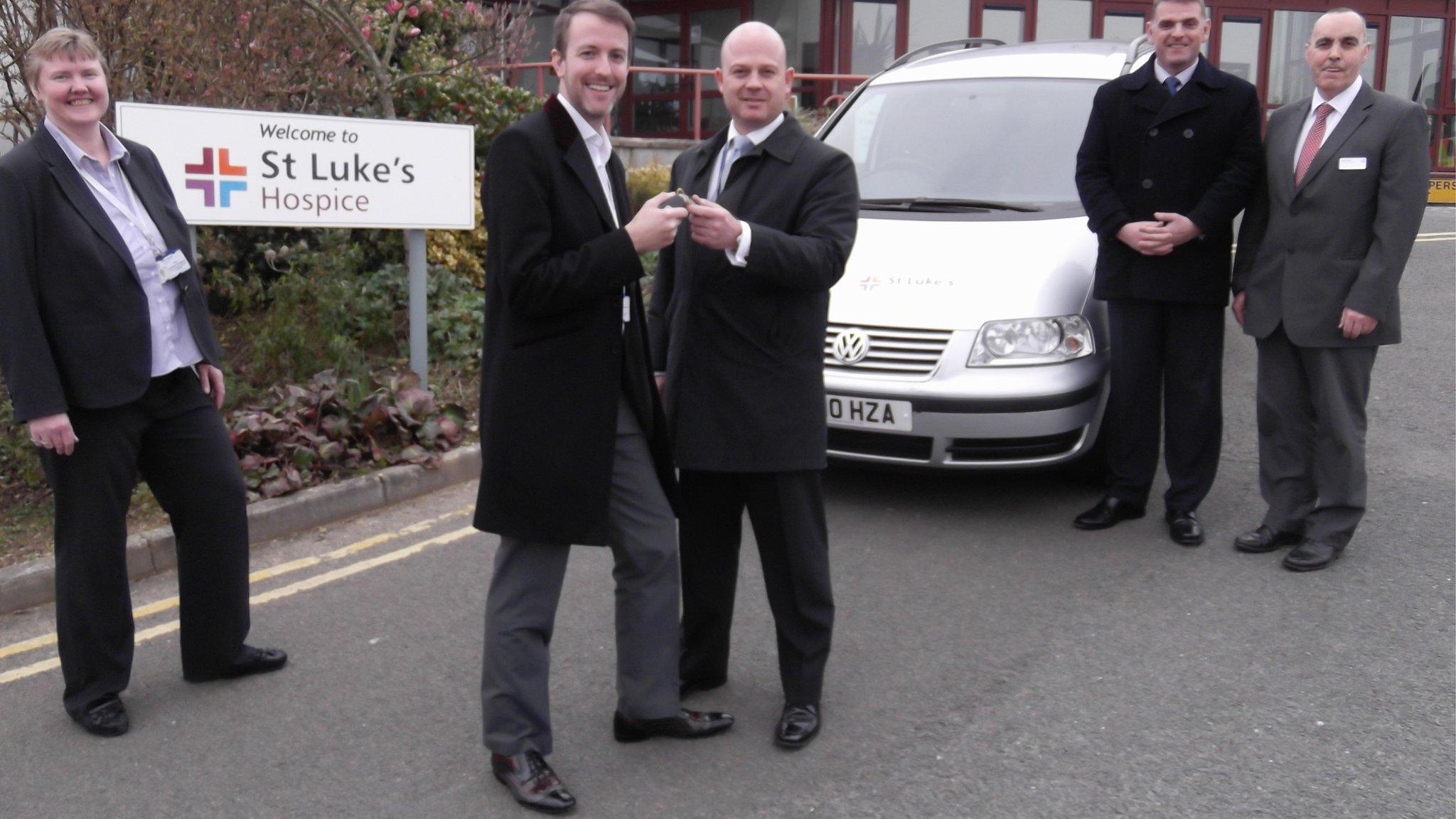Smeaton's Tower to light up for 40 years of St Luke's Hospice
- Published
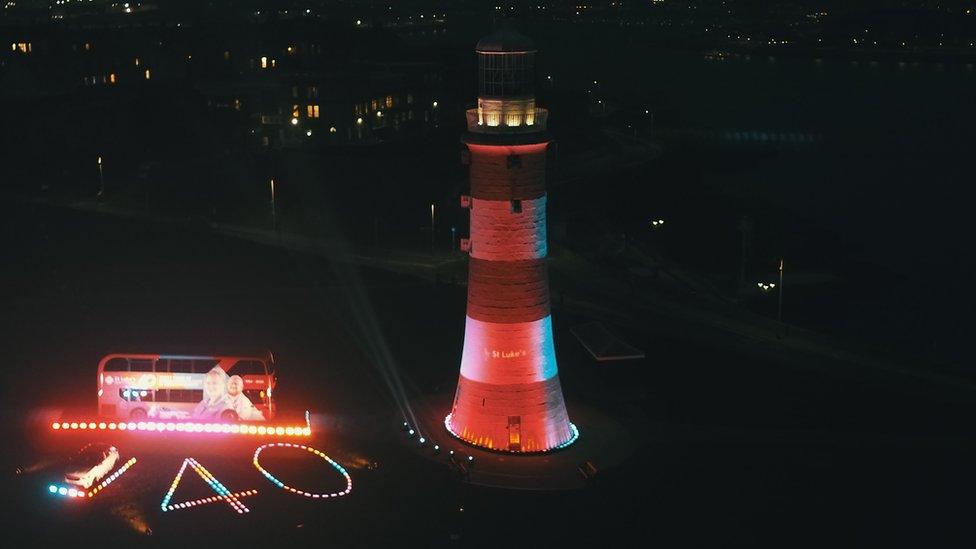
Beacon of light: Landmark Smeaton's Tower in Plymouth marks 40 years of St Luke's Hospice
Smeaton's Tower was lit up to mark 40 years of St Luke's Hospice in Plymouth.
The charity delivers care for terminally ill people in a home-from-home environment, rather than in hospital, to ensure their comfort and dignity at the end of their lives.
Founded in January 1982, it looks after about 300 patients on any given day.
The charity said it would not exist "without the unstinting support we receive from the community".
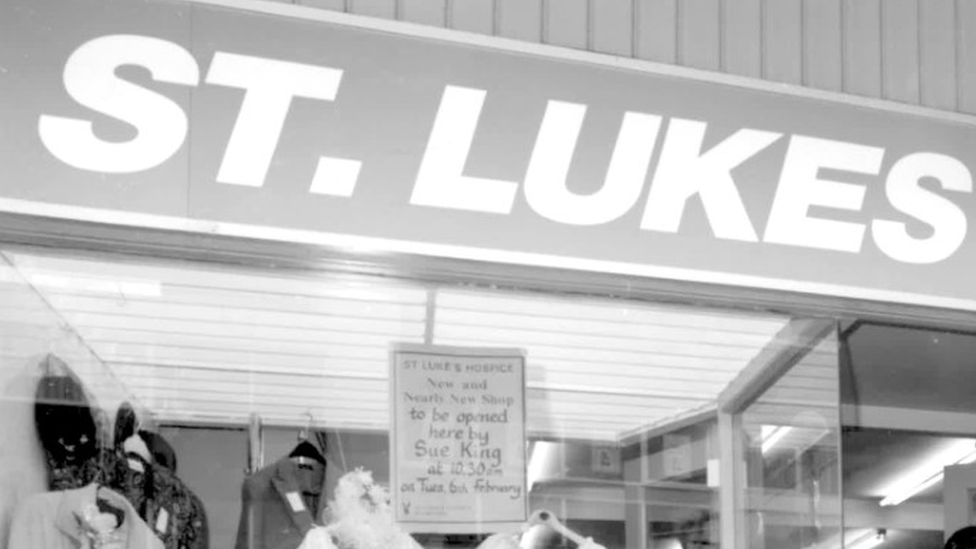
The charity has opened a number of charity shops across Plymouth
Chief executive of St Luke's, Steve Statham, said: "What started in the early 1980s as the idea of a small group of parishioners led by the Rev John Watson of St Andrew's Church in Plymouth grew to become what St Luke's is today, the main provider of end of life care for the city and its surroundings areas.
"Quite simply though, we would never have come into existence, let alone still be helping local families four decades on, without the unstinting support we receive from the community around us."
St Luke's Hospice needs to raise more than £7.8 million each year to continue to run its services 24-hours a day, 365 days a year.
To raise funds, the charity hosts weekly lottery draws, has charity shops around Plymouth and holds annual events such as Midnight Walk and Men's Day Out - with people collecting sponsorship money to take part.
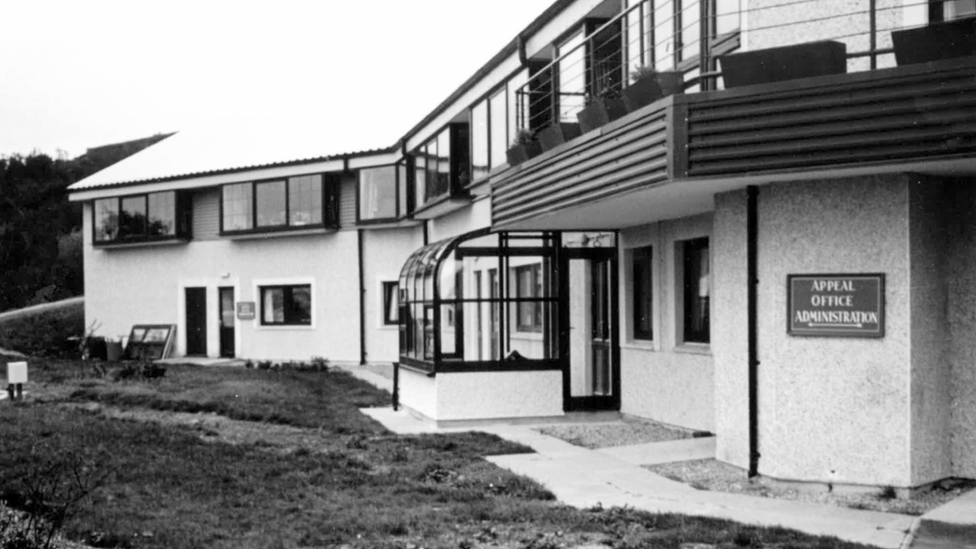
Patients with the most complex symptoms are admitted to St Luke's specialist unit at Turchapel, the charity said
"All who give to the hospice, whether as volunteers or through donations and fundraising, do so in the knowledge that they are supporting something of priceless value, the highly skilled, compassionate care people need at the end of their lives so that they can feel as at ease as possible and make precious memories with loved ones," Mr Statham added.
About 95% of patients are looked after by the charity's team at home or in hospital, with only those with the most complex symptoms needing to be admitted to the specialist unit at Turchapel, St Luke's said.
Rosie Morgan, a nursing sister and matron from 1982 to 2010 joined the charity at its beginning and went on to become matron of the hospice, remaining with the charity for 28 years.
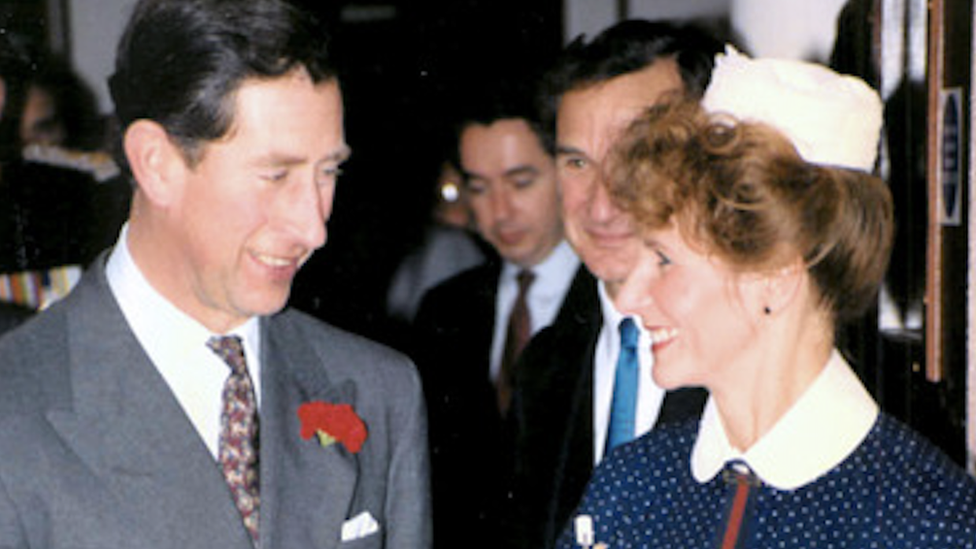
Rosie Morgan meeting the Prince of Wales on a visit to the hospice
She said "nothing was too much trouble if it helped the patients, and that is still the same at St Luke's today."
"I remember Dr Mary somehow arranging for a helicopter to be scrambled at very short notice when a lady from Wales, who was very poorly, said how she longed to die in her homeland.
"It was challenging work but just so rewarding looking after patients and seeing them look better. There's no feeling like it. There was such a close bond between the staff and volunteers - it felt like a family because we all drew strength from each other," she said.
St Luke's Hospice said its teams not only provide practical advice to patients, but it also provides emotional support to the patient's families at the difficult time.
It predicts that the number of people requiring palliative care will increase by 42% by 2040.

Follow BBC News South West on Twitter, external, Facebook, external and Instagram, external. Send your story ideas to spotlight@bbc.co.uk, external.
- Published9 January 2014
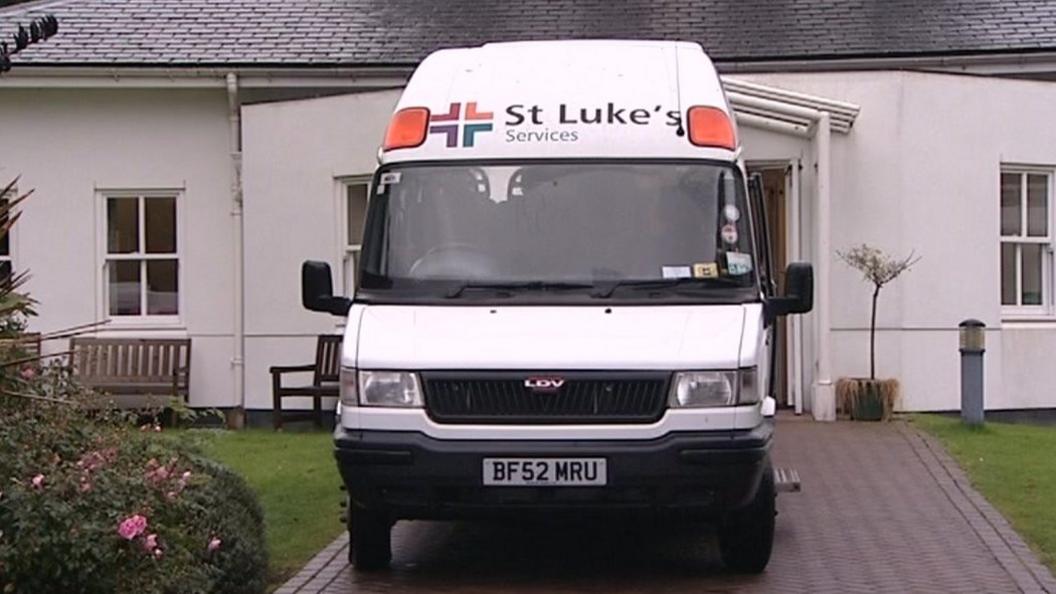
- Published27 March 2013
